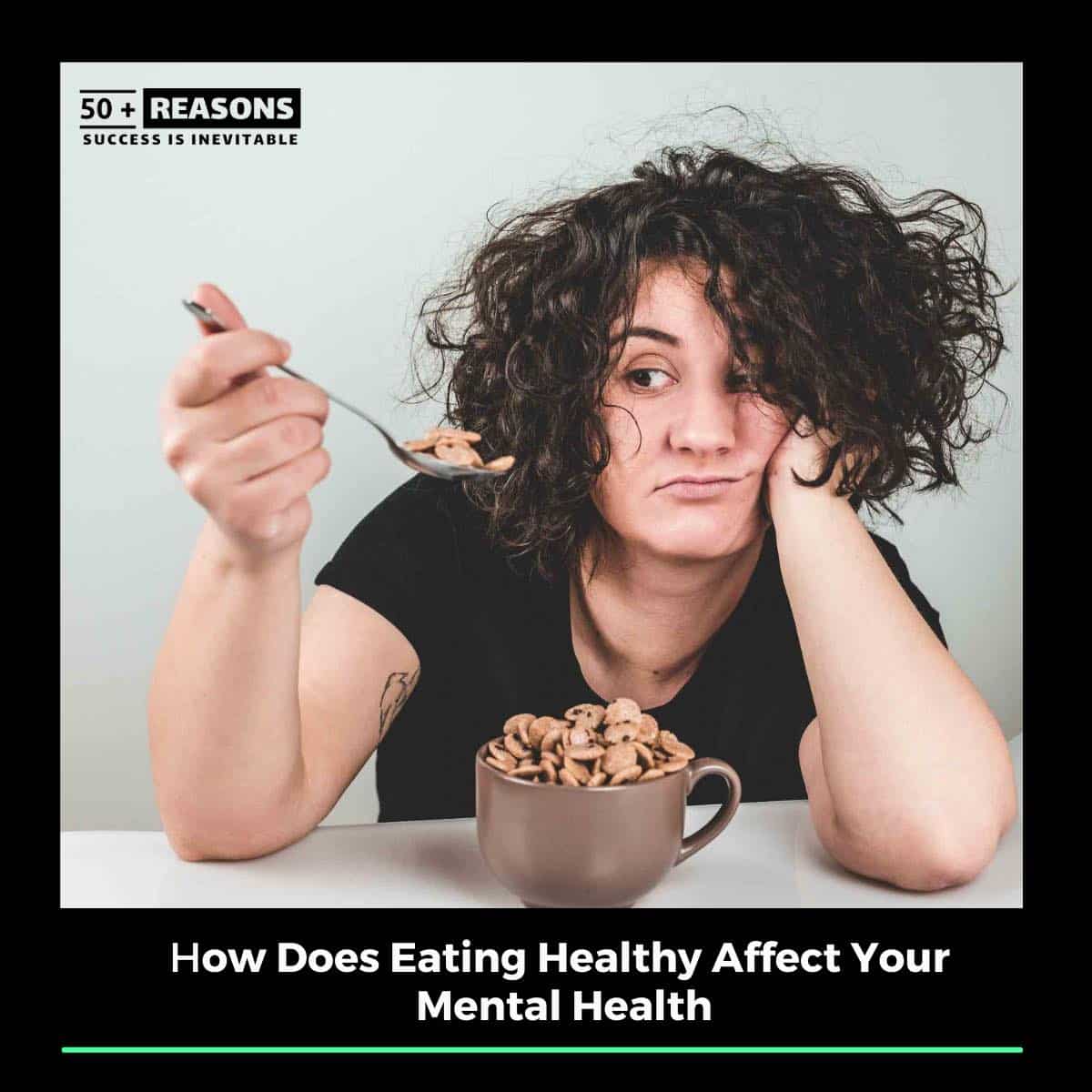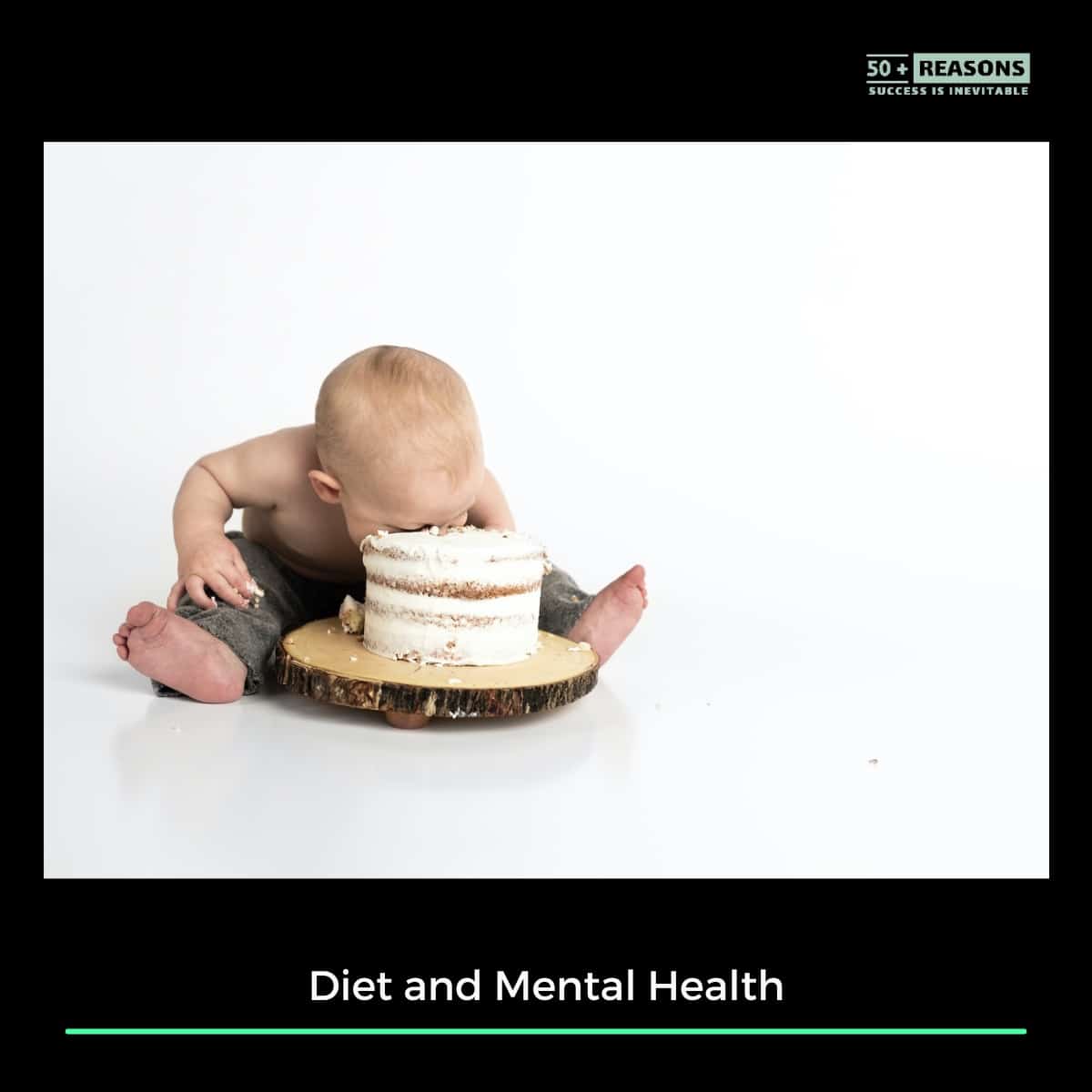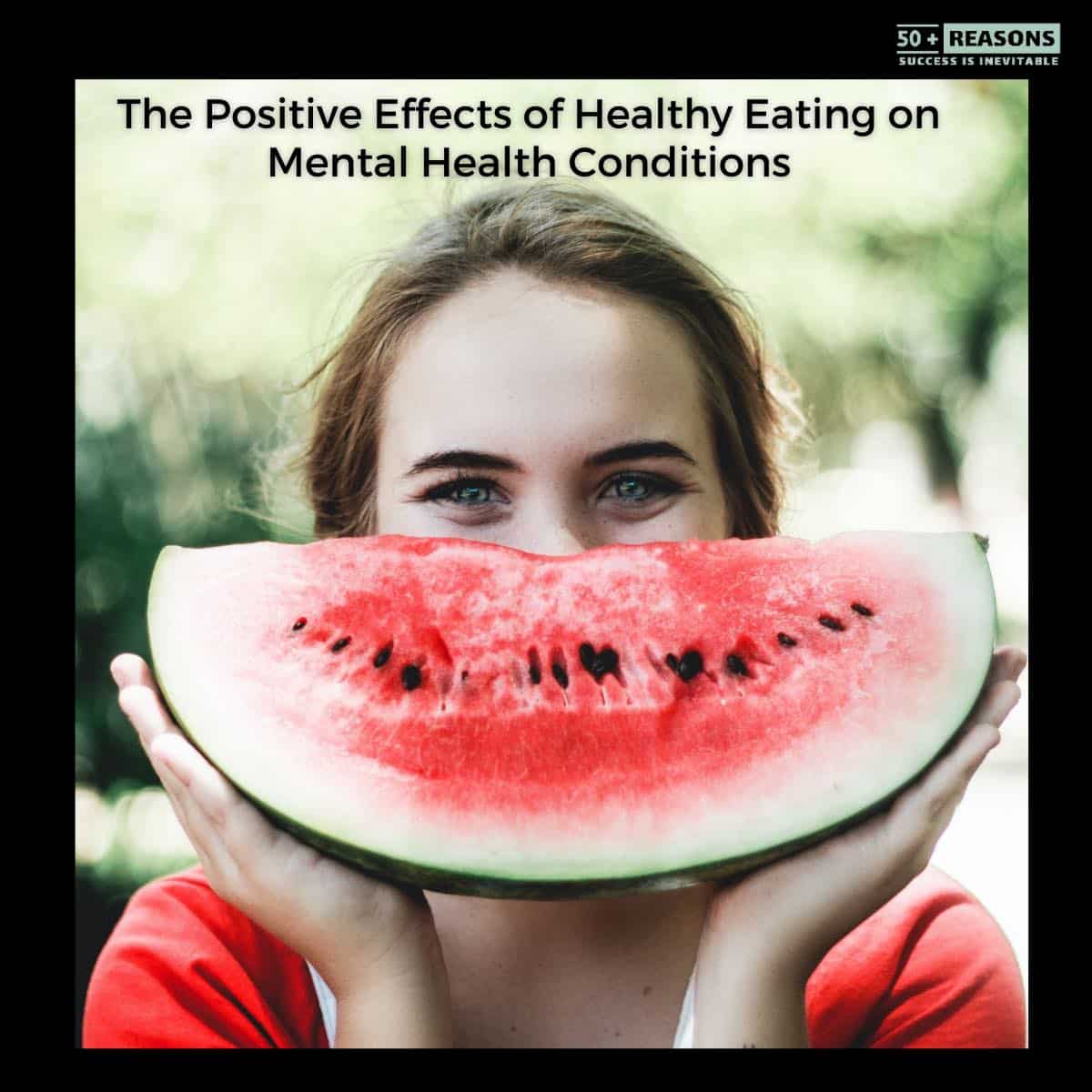The Direct Link Between Your Diet and Mental Health
The link between food and your mental health conditions has been a topic of interest for many years, with numerous studies and research now showing a strong correlation between food and mood. It is no secret that the food we consume directly impacts our physical health, but what about our mental well-being? Can the food we eat affect our mood and overall mental health? Can the link between food and mental health be proven?
The answer is yes. In fact, the saying “you are what you eat” holds not just for our physical appearance but also our mental state. Discover how taking care of our bodies can also benefit our minds.
Food and Mood
The correlation between food and mental health is a fascinating and complex topic. It has gained significant attention recently. Numerous studies and research have consistently shown a strong link between the two. Highlighting the importance of paying attention to what we eat for our mental well-being.
When we think about the impact of food on our bodies, it’s not difficult to understand why it also affects our minds. Our brain is a highly complex organ that requires a variety of nutrients to function optimally. Nutrient deficiencies can lead to imbalances in brain chemicals, such as serotonin and dopamine, which play crucial roles in regulating mood and emotions.
For example, a deficiency in specific vitamins, such as vitamin D, B vitamins, and omega-3 fatty acids, has been linked to an increased risk of anxiety, depression, and other mental health disorders. These nutrients are found in foods like fatty fish, nuts and seeds, leafy greens, and eggs. By including these foods in our diet, we can support our brain health and reduce the risk of developing mental health issues.
Additionally, the gut-brain connection has emerged as a critical factor in understanding the relationship between food and mental health. The gut is home to trillions of bacteria. These are known as the gut microbiota. Microbiota plays a crucial role in digestion and the production of important neurotransmitters. Critically, neurotransmitters, including serotonin, are essential for maintaining a positive mood and regulating sleep, appetite, and overall well-being.
Food and Mental Health

How Does Eating Healthy Affect Your Mental Health
Interestingly, the gut microbiota composition can be influenced by the foods we eat. Research has found a diet high in carbohydrates and processed and sugary foods can disrupt gut-bacteria balance. Unquestionably, this leads to inflammation and an increased risk of mental health disorders. On the other hand, a diet rich in fats, proteins, and natural probiotics can promote a healthy gut microbiota and support mental well-being.
The impact of food on mental health extends beyond just the nutrients and gut-brain connection.
Unhealthy foods, such as processed and refined foods, sugary snacks, fast food, and a carbohydrate-rich diet, can contribute to weight gain and physical health issues. This, in turn, can also negatively affect self-esteem and body image, leading to a decline in mental well-being.
Overall, the correlation between food and mental health is clear. The food we consume directly impacts our brain function, neurotransmitter production, gut health, and overall well-being. By prioritizing a diet rich in whole foods, we can support our mental health and reduce the risk of developing mental health disorders.
The Link Between Food and Mental Health

What Foods to Fuel Your Body
Our eating habits have a significant impact on our mood. The foods we choose to fuel our bodies can either enhance our mental well-being or leave us feeling sluggish and moody. It’s essential to understand how different eating habits can affect our mood so that we can make more informed choices about what we put into our bodies.
One of the primary ways that eating habits impact our mood is by regulating blood sugar levels. Our blood sugar levels spike quickly when we consume foods high in sugar and simple carbohydrates, such as cookies, cakes, and white bread. This sudden surge in blood sugar provides us with a burst of energy and dopamine, but it is short-lived. As our blood sugar levels rapidly drop, we may experience fatigue, irritability, and even anxiety or depression. This rollercoaster effect on blood sugar can leave us emotionally and mentally drained. If you keep this dietary pattern up, it is just a matter of time before you become metabolically unhealthy.
This puts you at risk of heart attacks, stroke, type 2 diabetes, high blood pressure, etc.
I was personally horrified to find my blood sugar levels had climbed significantly since the last time I had my bloods tested. Weirdly, I had also been trying to figure out why I wasn’t feeling at the top of my game lately. I am so glad I walked into the doctor’s office a few weeks ago and had my blood work done. I was starting to see the relationship between diet and mental health in my own life. It took a complete reorganization of my diet, and I am already seeing improvements.
I have been getting my energy back, together with my zeal for life. I can’t believe how important a role diet plays in our lives.
A growing Body of Research Points to the Link Between Diet and Mental Health

Diet and Mental Health
A frightening study in Carolina a few years back showed that only 12 percent of American adults are metabolically healthy. 12 percent?
There is a war in our grocery stores that we need to overcome. Our diet may be causing mental health problems, which increases our risk factor for depression. With everything happening in the world, the last thing we need is our food fighting against us.
Certain foods could help reverse this horrible trend. The types of fats we consume play a role in our mood regulation. Omega-3 fatty acids, which are found in fatty fish, walnuts, and flaxseeds, have been shown to have mood-boosting effects. These healthy fats are essential for producing neurotransmitters in the brain that regulate mood, such as serotonin and dopamine.
A study from Harvard researchers in the March 2018 issue of The American Journal of Clinical Nutrition found that consuming monounsaturated fats, especially from nuts and olive oil, can lower a person’s risk of heart disease — especially if the healthy fat replaces saturated fat and refined carbs.
Related articles and studies show that more healthy fats in your diet (even from grass-fed animals) significantly decrease your risk of cardiovascular disease, morbidity, and mortality.
Foods can help improve anxiety disorders, prevent mental health issues, and even reverse metabolic health issues. Studies and research show that diet quality affects mental and emotional well-being.
Furthermore, eating habits can impact our mood through the gut-brain connection. The gut is home to trillions of bacteria crucial in producing neurotransmitters. When we consume a diet high in processed foods and sugary snacks, we disrupt the balance of our gut microbiota, leading to inflammation and an increased risk of mental health issues.
The Positive Effects of Healthy Eating on Mental Health Conditions

The Positive Effects of Healthy Eating on Mental Health Conditions
Eating a healthy diet, one similar to a Mediterranean diet, not only benefits our physical health but also profoundly impacts our mental well-being. When we prioritize nutrient-dense foods and maintain a balanced diet, we provide our brains with the necessary fuel to function optimally. As a result, our mental health reaps the benefits.
One of the essential positive effects of healthy eating on mental well-being is the regulation of neurotransmitters in the brain. These neurotransmitters regulate mood, emotions, and overall mental health. By including foods rich in these nutrients, such as fatty fish, nuts, seeds, leafy greens, and eggs, we support the production of these essential brain chemicals and promote a positive mood.
Additionally, healthy eating promotes a healthy gut microbiota, which directly impacts our mental well-being. The gut-brain connection has become an area of significant research, highlighting the importance of a balanced gut microbiome for optimal mental health. Positive changes in the gut directly contribute to decreased symptoms of depression and depressive tendencies. In fact, there is the science of Nutritional Psychiatry. This is the practice of using food and food supplements as alternative treatments for mental health disorders.
When we fuel our bodies with wholesome, nutrient-dense foods, we prioritize self-care and show ourselves love and respect. This can boost our self-esteem and self-worth, leading to improved mental health. On the other hand, when we engage in unhealthy eating habits and overconsume sugary snacks and fast food, we may experience guilt and shame, which can negatively impact our mental well-being.
Physical Health Must be Prioritized

Your Physical Health Must be Prioritized
Furthermore, prioritizing nutrition and mental health often goes hand in hand with engaging in other healthy lifestyle choices, such as regular exercise and adequate sleep. These factors also play a crucial role in reducing mood disorders. When we care for our bodies through nourishing foods, exercise, and restful sleep, we create a positive cycle supporting overall mental well-being.
We are fortunate to have the expertise and insights of renowned health professionals to shed light on the connection between food and mental health:
Dr Jason Fung
Dr. Jason Fung, a leading expert in intermittent fasting and low-carb diets, emphasizes the importance of managing insulin levels for optimal mental health. He explains that high insulin levels can disrupt brain function and contribute to mental health disorders such as depression and anxiety. The nephrologist suggests that individuals can stabilize their insulin levels and support mental well-being by adopting a low-carb, high-fat diet.
Dr. Boz (Annette Bosworth, MD)
Dr. Boz (Annette Bosworth, MD) shares her expertise on the ketogenic diet and its impact on mental health. She explains that by fueling the brain with ketones, the brain’s preferred energy source on a ketogenic diet, individuals may experience improved focus, mental clarity, and mood stability. The doctor highlights the importance of nourishing the brain with healthy fats and nutrients while reducing sugar and refined carbohydrate intake.
Dr. Mindy Pelz
Dr. Mindy Pelz, a functional medicine expert, emphasizes the role of gut health in mental well-being. She explains that an unhealthy gut microbiome, often caused by a poor diet, can lead to inflammation and imbalances in neurotransmitters. The doctor suggests that individuals can improve their mental health by supporting a healthy gut microbiome by incorporating gut-healing foods such as fermented vegetables, bone broth, and probiotics.
Dr. Ken D Berry
Dr. Ken D Berry, a family physician and advocate for the ketogenic lifestyle, discusses the impact of inflammation on mental health. He explains that a diet high in processed and inflammatory foods can lead to chronic inflammation, which has been linked to an increased risk of depression and anxiety. The doctor suggests that individuals can reduce inflammation and support mental well-being by adopting an anti-inflammatory diet that includes nutrient-dense foods.
Thomas Delauer
Mr. Thomas DeLauer, a health and fitness expert, shares his insights on the connection between food and mental health from a holistic perspective. He highlights the importance of a balanced diet that includes a variety of whole foods, rich in nutrients and free from processed ingredients. Also, emphasizing that by nourishing the body with the right foods, individuals can support their physical and mental health.
Prevent Mental Health Issues Quickly and Easily

How does eating healthy affect your mental health
These expert insights highlight the powerful impact that food can have on our mental health. Check them out to see how hundreds of thousands of people have been reversing metabolic problems. They will show how a change from a traditional Western diet to more healthy food choices will reduce symptoms of depression.
The nutrition affect of proper diet and nutrition is a decrease in depressive symptoms. Our common mental health conditions can be fixed by as simple a thing as good nutrition. Comfort foods, foods high in sugar and carbohydrates, lead to mood swings and poorer mental health. If bad eating habits aren’t curtailed, and you already suffer from poor metabolic health, this could lead to a major depressive disorder.
It is so important to learn how a well-balanced diet and some nutrition research will benefit you. Could you take some time to listen and read from the experts above? Our mental health outcomes and our physical health outcomes revolve around our eating patterns.
Learning New Skills
I have found that learning new skills and growing are powerful answers to a happier life. If one of these skills brings more money into my account each week, then even better! From Berkshire Hathaway to Blackrock, all money managers use options to bring in extra income from their stocks. You can, too.
Options must be one of the easiest ways to take control of your money. Click below for a FREE ‘Options for Beginners course.’
Start to learn how to manage your own money.
Free
Great for Beginners
What’s Included
Learn how Options work.
Start to take charge of your savings





